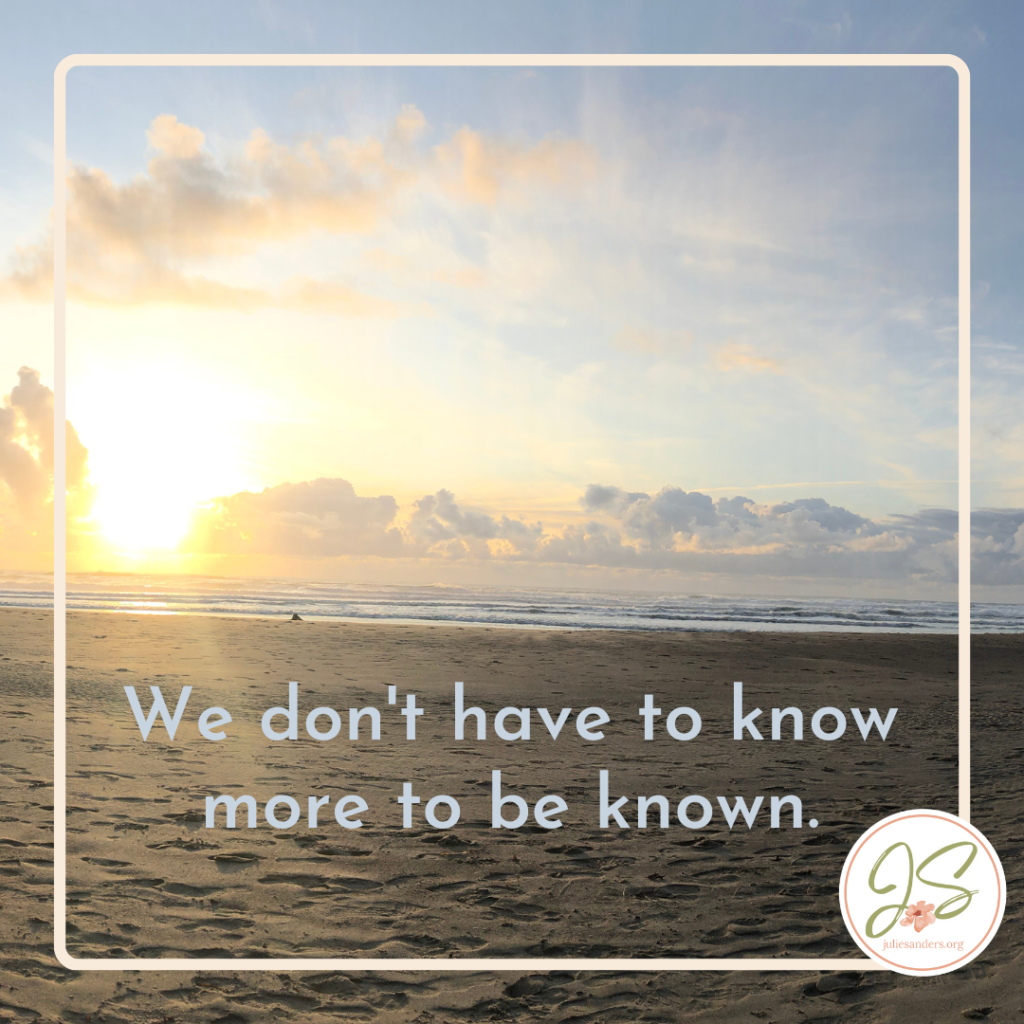I got into the car feeling excitement mixed with uncertainty. We barely knew each other after a few meetings. I hoped for a good connection to sprout during the three-hour car ride. She clearly hoped a close relationship would blossom too. But it didn’t. Instead, across the miles, I listened and listened to the kind of conversation know-more people have.
Most of the three-hour conversation centered on who she knew, what she knew, and how she knew it all. In rare intervals when I chimed in, she let me know she already knew more or did more. When I ventured to ask a question or share a common experience, she responded with quick answers to top anything I could dredge up from my life. From her response, I could tell she thought I had nothing new or interesting to offer. I realized she didn’t want to know me, but she deeply longed to be known.
In other words, on the surface, her “know-more” message in our ride was this: she mattered more.
The sad thing about a “know-more” is that it does the opposite of what the know-it-all hopes for. It doesn’t draw people close or cause close relationships to blossom. It pushes people away and crushes connection. A know-more makes it hard to be known.
We don’t have to know more to be known.

The Bible makes two key claims about what people know. If they’re true, and I believe they are, these two truths free us from falling into the lie that we have to know more in order to be worth being known.
Know-More People Get a Big Head
“We know that ‘We all possess knowledge.’ But knowledge puffs up while love builds up. Those who think they know something do not yet know as they ought to know. But whoever loves God is known by God.” (1 Corinthians 8:1b-3)
This verse is in the context of people knowing information related to how to live. In this case, eating meat someone gave as an offering to an idol. That’s not just from Bible times; people still do this around much of the globe. What is there to know about eating something someone else gave as a gift to an idol?
That wasn’t the only point. This verse makes it clear that when people know a lot and have a know-more attitude about their knowledge, it puffs them up. It gives know-more people what my mom calls, “the big head.”
A “big head” keeps people at a distance. Some people who “think they know something” are the loneliest people. Their need to constantly insert their information, opinion, or experience and put it forward in front of others keeps them at arm’s length.
What’s better than knowing more? Knowing that “whoever loves God is known by God.”
That’s really what a know-more wants most. To be known.
People In-the-Know Aren’t Worth More
All the information an expert gives to out-do or one-up others? It doesn’t make the “knower” worth any more than the simple person. In fact, in God’s upside down structure, God looks for the one who stays curious, who wants to know others, who thirsts to learn – who wants to know HIM.
“But God chose the foolish things of the world to shame the wise; God chose the weak things of the world to shame the strong. God chose the lowly things of this world and the despised things—and the things that are not—to nullify the things that are, so that no one may boast before him.” (1 Corinthians 1:27-29)
God says everyone is worth knowing, even if you don’t know much.
I got out of the car feeling relief mixed with sympathy. I was asking myself questions like:
- What caused my companion to feel like she always needed to know more?
- Why did she feel the need to prove how special she is?
- So who whispered mixed-up messages to her about her worth?
- Wasn’t she tired of trying to one-up everything?
Did she really believe all she said? - For someone working so hard to narrate how she knows more, how could she NOT know she was sabotaging her longing to be known?
In a word, we don’t have to know-it-all to be known and loved. And we can share that message with the people we ride through life with today.
5 things to Say to Avoid Being a Know-More
- Say nothing. Listen.
- Say “Tell me more.”
- Say “What you know matters.”
- Say “I’m glad you shared that.”
- Say “Thanks for listening. How about you?“

